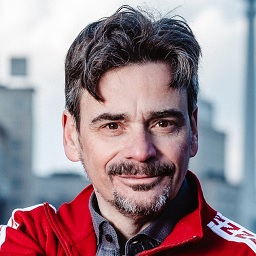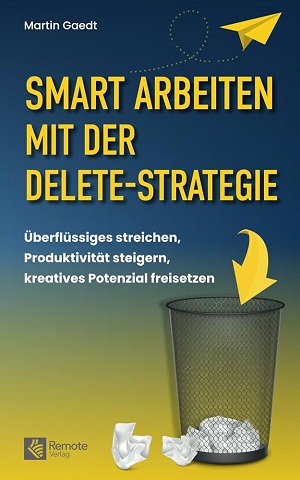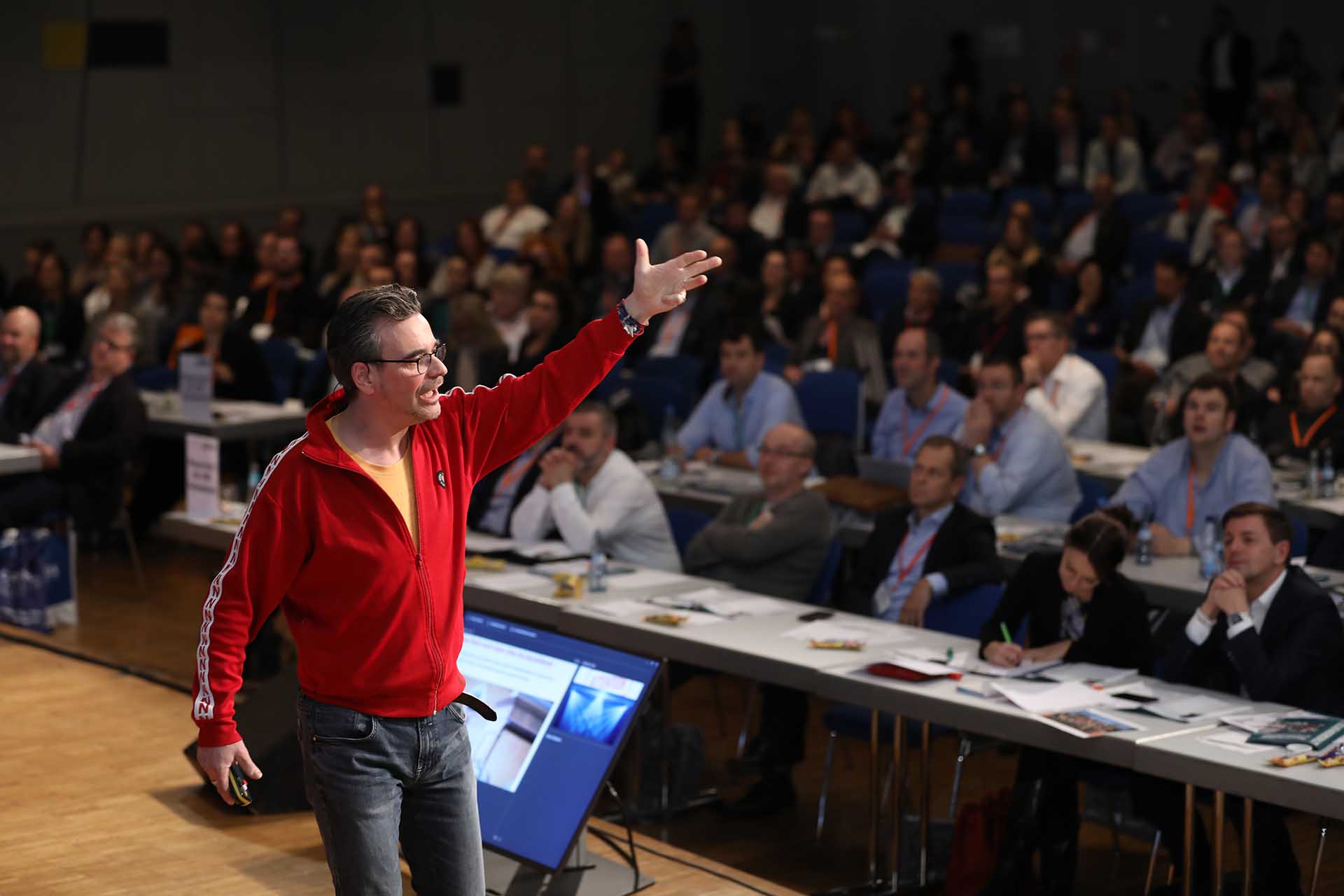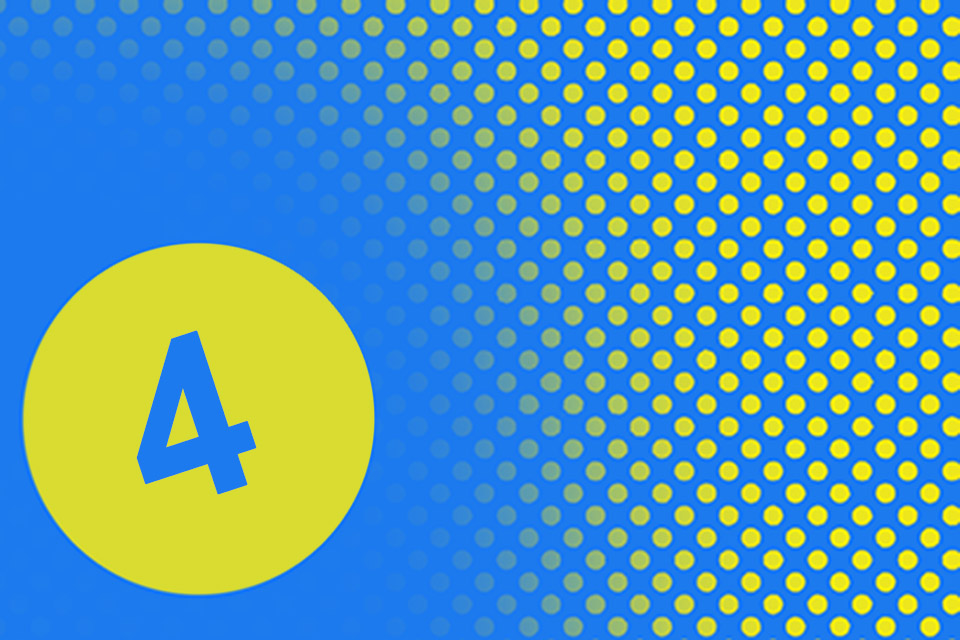Delete strategy: Relief instead of overload
Relieving people for healthy work with the delete strategy
Overload at work is something I hear more and more often in conversations. Do you feel the same way? More and more tasks, requirements, tools, digital platforms, laws, products and processes are being added to everyday working life. It’s too much of everything. Even good tools and methods for efficiency and optimisation can be too much of a good thing. Too much is too much. The too-much-of-everything does not diminish with more time management or more self-optimisation.
The effects are measurable: the sickness rate rose in 2022 and reached a new high in 2023. [1] More and more people are suffering from burnout. This is simply too much suffering, and the costs for companies and our society are too high. At the beginning of 2024, one headline read: ‘Without the high sickness rate, the German economy would apparently have grown in 2023 and not shrunk.’ [2]
Is a high sickness rate avoidable?
How we work is not a law of nature
We produce an abundance of unhealthy labour. This is not an accident or the work of a higher power. Working conditions are invented and implemented by us, so they can be changed at any time. We should no longer be able to afford illnesses caused by unhealthy work.
We should delete everything that stands in the way of health. Let’s make room for the next, better version of healthy and smart work. The key question is: What can we leave out? What waste can we no longer afford?
Instead of more time management, more efficiency and more self-optimisation, I propose a different way of thinking: Delete, declutter, delete and omit FIRST. Not more tasks and more projects, but: What do we leave out? Delete for healthy work. Reduced workload relieves people and improves work.
What do we leave out to reduce our workload?
We can work smart and do less by deleting superfluous, expensive and worthless tasks. Focus frees up resources. Reducing workload improves service and turnover.
In a tax firm, there are ‘quiet hours’, i.e. three hours a day when the phone doesn’t ring. The clients are aware of this. In addition, the servers are set up so that emails are only sent internally twice a day. Instead of expecting the team not to be distracted by every email, the structure is adapted for everyone. Employees can now get more work done in 34 hours without stress than in 40 hours before. And turnover has increased.
One hotel has reduced its working hours from 40 to 36 hours with full pay. The hotel didn’t ask for more work, but made advance payments and reduced the workload of the crew. The 1,400 annual online reviews from guests are now significantly better than before. Relaxed people are more relaxed. Guests experience better service and write better reviews. This brings the hotel more guests, more turnover and more applications. Attractive working conditions attract people.
Starting work at 3 a.m. is unattractive for many people. Does a baker have to start baking at night? Master baker Till Gurka is breaking away from traditional structures and defying the shortage of skilled labour. His bakery ‘Till und Brot’ opens at 11 o’clock in the morning and bakes from 6 or 7 o’clock. He realises: ‘I get more applications than I can take on.’ [3] And more and more bakeries in Germany are following his example. It works!
If you have a shortage of skilled labour – especially at the current time when the number of people in employment in Germany is at an all-time high of 46 million [4] – you should change your offering. Cancelling old assumptions, deleting familiar standards, decluttering worthless activities, clearing out bureaucracy. All this creates great freedom!
Are we using working time wisely?
The number of nursery nurses has almost doubled in Germany in the last 10 years. Even the number of carers is rising steadily. 1.69 million nurses were working in Germany in 2023 [5] and the numbers have been rising continuously for many years, up 18 per cent in hospitals since 2011 [6] and up 40 per cent in outpatient services and care homes since 2009.
The problem is the incredible amount of time wasted on bureaucracy. Back in 2015, the Ärzteblatt reported that hospital doctors had to spend 44 per cent of their time on documentation. According to the Ärztezeitung, nursing staff spend more than 30 per cent of their working time on documentation. [7]
Do we have too few nurses or are we wasting billions of hours of valuable work? That’s completely crazy! If bureaucracy were halved, there would be 100,000 more people working full-time in nursing care ad hoc. These people are already there and working in the profession. We are wasting their working time and crying ‘shortage of skilled labour’. ‘We don’t have too few carers in Germany. The problem is that the existing staff barely get to care,’ says the chairman of the Hartmannbund, Dr Thomas Lipp. [8]
Too few skilled staff or too much time wasted? Instead of pushing ahead with the decongestion, a number of politicians and association chairmen are passing the buck to the population. They complain publicly about the laziness of people in ‘Leisure Park Germany’. [9]
What do the facts say for 2024?
The number of people in employment in Germany has risen continuously for 30 years. [10] In addition, the proportion of the total population in employment in Germany is very high compared to other European countries. This gives us a fourfold record:
- A very high labour force participation rate – 6th place in Europe. [11]
- One of the lowest unemployment rates – fifth last place. [12]
- 45.9 million people in employment in 2023, an absolute record in Germany. [13]
- Overall, more hours are being worked in Germany than ever before. [14]
Why is this so little reported? This is really good news. We could celebrate it. And it gets even better: 2nd place for patents!
Did you know that the European Patent Office received more patent applications in 2023 than ever before: 199,275. That’s 2.9 per cent more than in 2022. 24,966 patents came from Germany, 1.4 per cent more (MORE!) than in 2022, putting Germany in second place at the European Patent Office. [15] Germany is the European leader in patent applications, particularly in the fight against cancer.
Opinions are based on stories that are passed on to the masses. Lurid headlines such as ‘shortage of skilled labour’ and ‘leisure park’ sell better than a record number of people in employment and patents. Delete sensationalist headlines from your perception and regularly look at serious data and sources such as the Federal Statistical Office.
Choose wisely what you do and don’t do
Of course, many companies are desperately looking for employees. But the 46 million people in work have chosen an employer. Who will attract them? Let’s start by extinguishing the myth of a declining labour market. And let’s create scope for attractive, healthy work and innovation.
Before every new task and every new project, ask yourself the following question: Which old task, requirement, tool or project are we leaving out? Make this question a healthy routine. Before starting a new task, first clear out a task that has become worthless.
In addition, fill a list with overloads and unnecessary brake blocks in order to clear them out of the way. Stop overloading yourself with more and more tasks and even more obligations. Let go, clear and declutter, take the pressure off and focus. You can get out of this too-much-of-everything by clearing out and cancelling.
Our skin shows us how to regularly create space.
Professionally decluttering tasks like the skin
The skin is our largest organ. When you touch it, it appears firm and smooth. Yet every person loses 30,000 to 40,000 skin cells per minute – that’s millions of cells per day. We don’t even notice the loss. Our skin creates space for new skin cells to grow every day. It renews itself approximately every 28 days. This assumes that the waste has been disposed of beforehand. We cannot hold on to old skin. Otherwise we would be wearing 120 skins on top of each other after ten years. Nobody wants that.
Remove the rubbish in a structured and continuous way, just as the cells in our skin are renewed. Unlike skin, not every old task needs to be discarded. There are tried and tested habits that can continue to be valuable. Then they stay. Ask yourself and the team regularly: What do we need? What do we leave out? Organise the change in work like the natural process of the skin.
The company Shopify has developed a Google Chrome extension for its 11,000 employees that shows the amount of meeting costs in the calendars of all employees. ‘Nobody at Shopify would spend 500 dollars on a dinner. Nevertheless, many spend a lot more money in meetings.’ [16] The solution: seeing the costs changed the meeting mania. 322,000 hours are now used more effectively. We set the rules of the meeting game.
The most effective way to reduce the workload is to tidy up tasks and processes for all employees. Then the whole company is tidy and efficient. Overload needs relief. Good, healthy work is de-cluttered, unburdened work.
Notes (mostly in German):
Would you like to find out more about the delete strategy? We are happy to recommend the new German book by Marin Gaedt: SMART ARBEITEN MIT DER DELETE-STRATEGIE. Überflüssiges streichen, Produktivität steigern, kreatives Potenzial freisetzen.
[1] Ärztezeitung: https://www.aerztezeitung.de/Politik/IKK-Krankenstand-2023-auf-neuem-Hoechststand–446427.html
[2] Tagesschau: Drückte Krankenstand in Rezession?
[3] Focus: https://www.focus.de/finanzen/news/fachkraeftemangel-fehlanzeige-gen-z-baeckerei-oeffnet-erst-um-11-uhr-dem-chef-rennen-azubis-jetzt-die-bude-ein_id_259705492.html
[4] Tagesschau: Historischer Höchststand: Erstmals mehr als 46 Millionen Erwerbstätige
[5] Bundesagentur für Arbeit: Arbeitsmarktsituation im Pflegebereich
[6] Statistisches Bundesamt: https://www.destatis.de/DE/Presse/Pressemitteilungen/2022/05/PD22_N026_2313.html
[7] [8] Ärztezeitung: https://www.aerztezeitung.de/Politik/Genug-Pfleger-aber-zu-viel-Dokumentation-405451.html
[10] Soziale Situation in Deutschland: Erwerbstätigkeit
[11] Statista: Europäische Union: Erwerbstätigenquoten in den Mitgliedstaaten im 1. Quartal 2024
[12] Statistisches Bundesamt: https://www.destatis.de/Europa/DE/Thema/Bevoelkerung-Arbeit-Soziales/Arbeitsmarkt/EUArbeitsmarktMonat.html
[13] ZDF: Arbeitsmarkt in Deutschland: Zahl der Erwerbstätigen auf Rekordhöhe
[14] Augsburger Allgemeine: Arbeitsforscher: „Deutschland ist nicht faul geworden“
[15] Munich Startup: Europäischer Patent Index 2023: Gute & weniger gute Ergebnisse
[16] Capital: Arbeitsalltag: Ineffizient und teuer: Die wahren Kosten eines Meetings
Here you will find an interesting study that deals with additive and subtractive changes in organisations.
If you like the article or would like to discuss it, please feel free to share it in your network. And if you have any comments, please do not hesitate to send us a message.
Martin Gaedt has published two more articles in the t2informatik Blog:

Martin Gaedt
Martin Gaedt is the author of the books “4 Tage Woche” (2023) “Rock Your Work” (2022), “Rock Your Idea” (2016), “Mythos Fachkraeftemangel” (2014). Since 2014, he has provotaint more than 100,000 people in around 650 keynotes and workshops. He has been an entrepreneur since 1999, has founded companies himself and has been an employer 61 times.



